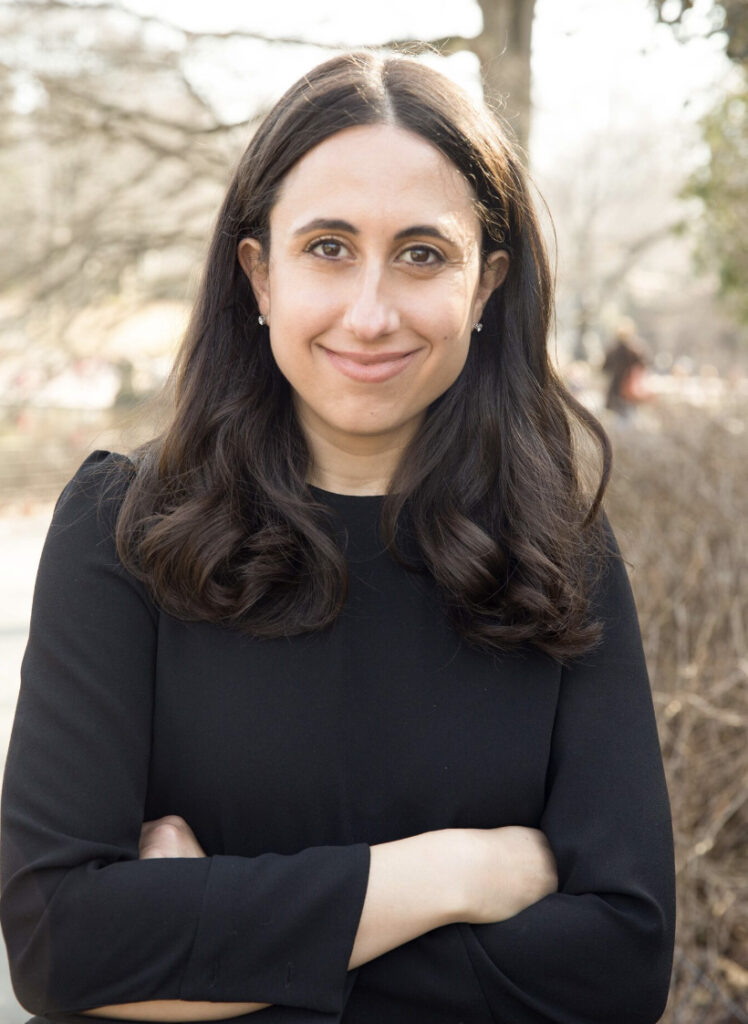This One’s for All the Trolls and Haters
 How Social Media Influences Women’s Lives, and Their Sense of Self
How Social Media Influences Women’s Lives, and Their Sense of Self
By Kara Alaimo
Two big things have happened to human beings over the past four million years, according to Justin Garcia, executive director of the Kinsey Institute. The first was the agricultural revolution. The second was the arrival of the internet. As a society and as individuals, we are only just beginning to reckon with the seismic ways social media is affecting our lives — sometimes for the better, but often for the worse.
The social impact of these apps is part of the focus of a new social media concentration in FDU’s B.A. in Communication program and a new minor — and it’s also the subject of my book Over the Influence: Why Social Media Is Toxic for Women and Girls — And How We Can Take It Back, out March 5.
The book, which is being published by Alcove Press, examines how social media affects every aspect of the lives of women, girls and nonbinary people — from our relationships and parenting to our physical and mental well-being.
The first chapter, “Girl Meets Instagram,” looks at how social media affects teen girls. There’s the story of one woman who joined Instagram as a teenager soon after the platform launched and quickly fell down a rabbit hole of toxic “fitspiration” content. Now in her late twenties, she continues to struggle with an eating disorder even after undergoing intensive treatment.
At the same time, I discuss the positive influences of social media, like how it often helps teen girls who are minorities connect with their “people” and find healthy communities, explore careers, and even find lifelines.
Academic research about how social media affects young people has been contradictory and even confusing, perhaps because so much depends on how young people (and, indeed, all of us) use these platforms. So, I offer specific advice to parents on handling their children’s use of social media — from suggesting to the parents of our children’s friends that we collectively hold off on allowing them to use apps until they’re older to helping children process what they see online in healthy ways.
I also explore how misinformation about pregnancy and parenting directly targets women and how it’s specifically designed to exploit women’s vulnerabilities — and how to avoid falling prey to such content. In addition, I explain why women who use social networks to try to bolster their careers often end up with fewer followers, re-posts and resulting opportunities than their male counterparts.
Unfortunately, another social media reality that women face comes in the form of violence and online hate, often as they begin to date and use dating apps. In a nonscientific Columbia Journalism Investigations survey of 1,200 women who dated online, a jaw-dropping 31 percent said they’d been sexually assaulted by someone they met on a dating site. I also explore new forms of violence against women such as sexploitation and so-called “revenge porn” (blackmailing someone with explicit photos or video content) that are now being committed on social networks — and offer specific advice for how women can protect themselves.
Sometimes women receive or witness so much online hate that they flee social networks altogether. While social media companies have defended their decisions to host hateful content on their sites by claiming that they’re promoting “free speech,” what they’re actually doing is silencing the many women witnessing and experiencing such abuse.
While it may be tempting to clap back when we see women attacked or people sharing sexist or misogynistic content online, I argue that it’s not the right response. Responding directly to such content only increases the amount of engagement it receives, which often triggers social networks’ algorithms to show it to more users. Instead, it’s better to buoy women (and, indeed, people of all genders) who are unfairly attacked online by posting about things like their professional accomplishments — and reporting the abuse directly to social networks in order to encourage them to take it down.
While I offer a lot of solutions for tech companies and lawmakers to implement, ultimately, we as users need to radically rethink the ways in which we engage with social media. If we all created and amplified more content about issues that affect us and changed who we follow, what we share and what we do when we witness online attacks, we could use social networks to empower ourselves and other women.
I encourage everyone to think about using their social platforms to bolster the people and causes they care about — and perhaps their own careers, thanks to FDU’s new social media concentration.
Teaching Social Media Strategy and Content Creation
Communication majors on both New Jersey campuses now have the option to select a concentration in social media as part of a new program, created by Kara Alaimo when she joined FDU in 2023. Students in other majors can also declare a minor in social media. Many students are interested in careers managing the social media accounts of brands, people and organizations. There are lots of such job opportunities — and recent graduates often enjoy a great deal of freedom and room for growth in these positions, as their more seasoned bosses frequently look to them for guidance on how to use the latest apps creatively and effectively. FDU’s new social media concentration prepares students for these opportunities by teaching them social media strategy and content creation.
The concentration also prepares students to work for social networks and other tech companies. Students will explore how social media is impacting society and how social networks can be designed to eliminate or reduce problems such as trolling, algorithm biases, and “filter bubbles,” which is when apps only show users content they think we will (literally) like, leaving us unexposed to other opinions and ideas. “In training FDU students to manage social networks responsibly, I hope to prepare them to solve some of the problems I write about in my book,” says Alaimo.

Kara Alaimo is deputy chair and associate professor of communication at FDU. She coordinates the communication program on the Metropolitan Campus and the social media concentration on both New Jersey campuses.
Alaimo has been writing for CNN Opinion about the impact of social media and issues affecting women since 2016, and is author of Over the Influence: Why Social Media Is Toxic for Women and Girls and How We Can Take It Back. She’s a former communicator in the Obama administration and at the United Nations. Her research has been published in numerous academic journals and she is currently writing the third edition of her book Pitch, Tweet, or Engage on the Street: How to Practice Global Public Relations and Strategic Communication, which explains how to adapt communication strategies for different countries and cultures.
For more about her upcoming speaking engagements, visit her website and follow her on Instagram, Facebook and X. She can also be reached at k.alaimo@fdu.edu.